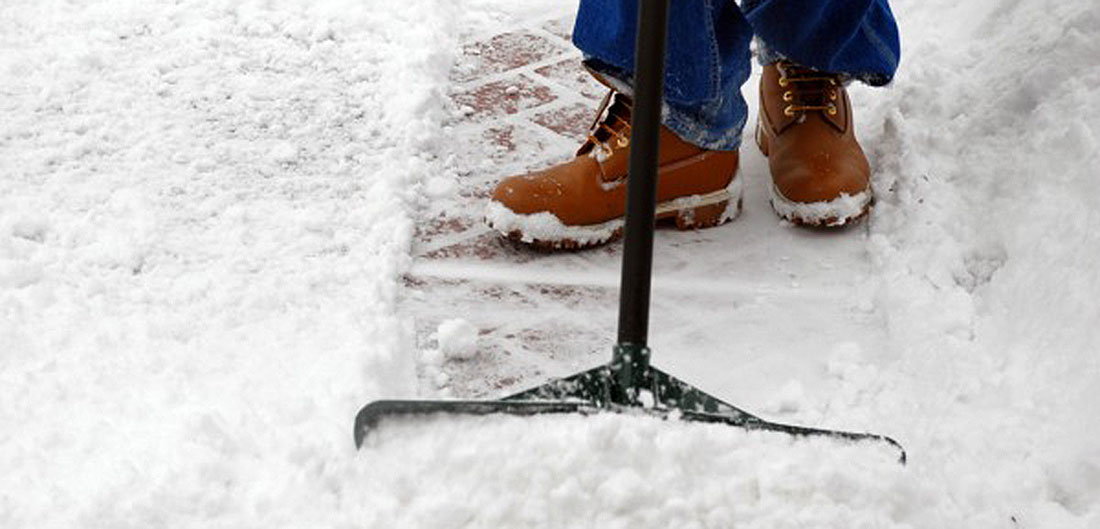Ask MRN: If I shovel my sidewalk after a snowstorm, can I be held liable if someone slips and falls?

Dear MRN,
Recently during our big snowstorm, two people told me about a “law” they had always heard about that says If you live in Quincy and shovel your walks, you can be held liable if a pedestrian slips and falls. Therefore, it’s better not to clean your sidewalks of snow. I found this a crazy idea, especially as I watched a poor mail carrier struggling up the sidewalk steps of a large Maine street home. Can you find out if it’s true or a tall tale?
This question was presented to Police Chief Rob Copley and Deputy Chief Adam Yates.
“I don’t know the origin, but I had heard years ago that you can’t be sued for not shoveling because it is an act of God,” Copley said. “However, if you shovel and it makes it more treacherous, you could be liable. This was not specific to Quincy. Perhaps it was a witty reply from a husband who didn’t feel like shoveling.”
Yates said he spoke with Michael Seaver, director of inspection and enforcement, and learned the city does not have an ordinance requiring a property owner to remove snow or ice from a sidewalk adjacent to their property.
Yates pointed to Article 91.136 in the City of Quincy’s municipal code regarding sidewalks and construction permits. It says a construction permit holder is responsible for keeping the sidewalk clear of snow and ice and free from all dirt and obstruction.
Since the city has no specific ordinance for snow and ice removal, the answer to the question can be found in the Illinois Compiled Statutes. The Snow and Ice Removal Act, which was passed in 1979, says:
“It is declared to be the public policy of this State that owners and others residing in residential units be encouraged to clean the sidewalks abutting their residences of snow and ice. The General Assembly, therefore, determines that it is undesirable for any person to be found liable for damages due to his or her efforts in the removal of snow or ice from such sidewalks, except for acts which amount to clear wrongdoing.
“Any owner, lessor, occupant or other person in charge of any residential property, or any agent of or other person engaged by any such party, who removes or attempts to remove snow or ice from sidewalks abutting the property shall not be liable for any personal injuries allegedly caused by the snowy or icy condition of the sidewalk resulting from his or her acts or omissions unless the alleged misconduct was willful or wanton.”
To summarize, if a residential property owner doesn’t remove snow and ice from the sidewalk (or does so negligently), a person who slips and falls on the sidewalk cannot sue the residential property owner unless willful and wanton misconduct can be proved.
How difficult is it to show willful and wanton misconduct in the removal or failure to remove snow and ice? Dexter Evans wrote a story about ice and snow removal for the DuPage County Bar Association and could not locate one appellate court case where such behavior was found.
Additional laws may apply depending where you own a property or business.
Laura Schrick and Holly Rogers wrote on the Mathis, Marifian & Richter website that in Edwardsville, for example, any person in charge of an apartment complex must clear snow and ice from sidewalks adjacent to the property. Businesses and those in charge of private parking lots also must clear the accumulation. Any person who fails to do so is liable for a fine and the cost of the city’s removal of the snow or ice.
The law in Missouri is similar.
Again, Missouri law does not require anyone to remove snow from their private property. A homeowner is protected from liability because they are not required to do anything with snow where it fell in a “natural accumulation.”
However, if shoveling or other snow removal methods creates a new hazard or “unnatural accumulation,” a Missouri property owner could be liable for injuries suffered on their property.
“One of the classic examples of that is the person who would decide to hose down their driveway to get the snow and ice out. Then the water from the hose creates unnatural accumulation of ice, that then presents a potential danger for someone who may trip or hurt themselves on that ice,” Chris Dixon of the Dixon Injury Firm in St. Louis recently told KSDK-TV.
Miss Clipping Out Stories to Save for Later?
Click the Purchase Story button below to order a print of this story. We will print it for you on matte photo paper to keep forever.

